HLC’s Press Release regarding the Judgment of the IRMCT’s Appeals Chamber in the case of Stanišić and Simatović

 The Appeals Chamber of the International Residual Mechanism for Criminal Tribunals (IRMCT) passed a judgment on the case against two former leaders of the State Security Service (SDB) of the Republic of Serbia’s Ministry of the Interior – Jovica Stanišić and Franko Simatović – establishing an international armed conflict in Bosnia and Herzegovina. This judgment has finally and unequivocally established the participation of the Republic of Serbia in the armed conflicts in Bosnia and Herzegovina and Croatia. The highest officials of the RS SDB were convicted as members of the joint criminal enterprise for the crimes perpetrated by the Serbian Volunteers’ Guard (SDG), Special Action Unit, Special Operations Unit (JSO) – the Red Berets, Martić’s Police and Scorpions in 1992 in Bosnia and Herzegovina: Bijeljina, Zvornik, Bosanski Šamac, Doboj and Sanski Most, and for the crimes perpetrated in 1995 in Trnovo and Sanski Most, as well as for the murder of Marija Senaši, perpetrated in Dalj Planina, Croatia, in June 1992.
The Appeals Chamber of the International Residual Mechanism for Criminal Tribunals (IRMCT) passed a judgment on the case against two former leaders of the State Security Service (SDB) of the Republic of Serbia’s Ministry of the Interior – Jovica Stanišić and Franko Simatović – establishing an international armed conflict in Bosnia and Herzegovina. This judgment has finally and unequivocally established the participation of the Republic of Serbia in the armed conflicts in Bosnia and Herzegovina and Croatia. The highest officials of the RS SDB were convicted as members of the joint criminal enterprise for the crimes perpetrated by the Serbian Volunteers’ Guard (SDG), Special Action Unit, Special Operations Unit (JSO) – the Red Berets, Martić’s Police and Scorpions in 1992 in Bosnia and Herzegovina: Bijeljina, Zvornik, Bosanski Šamac, Doboj and Sanski Most, and for the crimes perpetrated in 1995 in Trnovo and Sanski Most, as well as for the murder of Marija Senaši, perpetrated in Dalj Planina, Croatia, in June 1992.
The Appeals Chamber has established that Stanišić and Simatović, together with other military, political and police leadership from Serbia, the so-called SAO Krajina, SAO Slavonija, Baranja and Western Srem, as well as from the Republic of Srpska, constituted part of the joint criminal enterprise aimed at permanent expulsion of non-Serb population from the territories under the control of the Serb forces in BiH and Croatia, i.e. – ethnic cleansing.







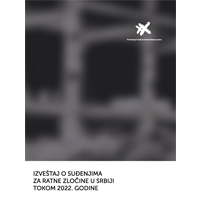
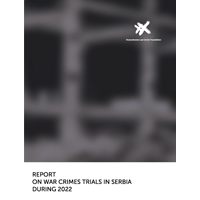
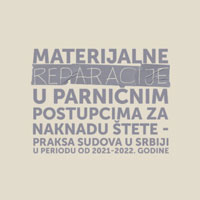
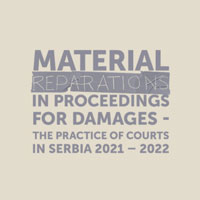 For a long time, the Humanitarian Law Center (HLC) has been publishing reports on the exercise of the right to compensation for victims of war crimes, through civil proceedings conducted before the courts in Serbia. The last such report covered the period from 2017 to 2020 and was presented to the public in 2021. This report covers the period from 2021 to the end of 2022.
For a long time, the Humanitarian Law Center (HLC) has been publishing reports on the exercise of the right to compensation for victims of war crimes, through civil proceedings conducted before the courts in Serbia. The last such report covered the period from 2017 to 2020 and was presented to the public in 2021. This report covers the period from 2021 to the end of 2022.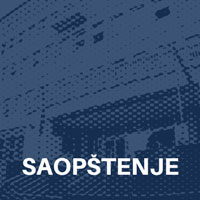
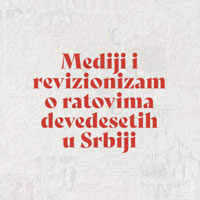
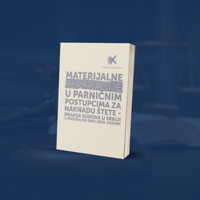
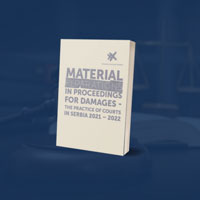 On Monday, 24 April 2023, Humanitarian Law Center (HLC) is going to present its report on “Material reparations in proceedings for damages – the practice of courts in Serbia 2021-2022 “ (the Report). The presentation will be held in the large hall of Media Centre Belgrade (Terazije 3, II floor), beginning at 12.30.
On Monday, 24 April 2023, Humanitarian Law Center (HLC) is going to present its report on “Material reparations in proceedings for damages – the practice of courts in Serbia 2021-2022 “ (the Report). The presentation will be held in the large hall of Media Centre Belgrade (Terazije 3, II floor), beginning at 12.30.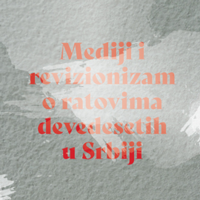
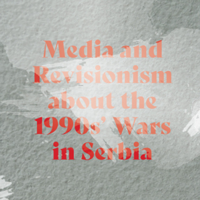 Following the regime change in 2012, the new authoritarian regime under the Serbian Progressive Party (SNS) put memory politics high on its political agenda. The revisionist history of the 90s’ wars now constitutes the primary source of its political legitimization. At the same time, the new government established a firm grip over media, leaving a few independent outlets still critical of the new memory politics. A majority of mainstream media operate in symbiosis with the regime, actively contributing to the new revisionist narrative. These narratives are further supported and accelerated in tabloid and alternative media, offering an even more radicalized version of the past. In such a mediascape, actors working on critical memory are limited to a few independent media outlets. At the same time, they are under constant threat from the regime and tabloids alike.
Following the regime change in 2012, the new authoritarian regime under the Serbian Progressive Party (SNS) put memory politics high on its political agenda. The revisionist history of the 90s’ wars now constitutes the primary source of its political legitimization. At the same time, the new government established a firm grip over media, leaving a few independent outlets still critical of the new memory politics. A majority of mainstream media operate in symbiosis with the regime, actively contributing to the new revisionist narrative. These narratives are further supported and accelerated in tabloid and alternative media, offering an even more radicalized version of the past. In such a mediascape, actors working on critical memory are limited to a few independent media outlets. At the same time, they are under constant threat from the regime and tabloids alike.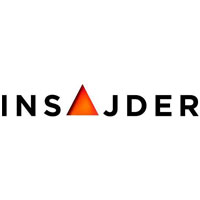
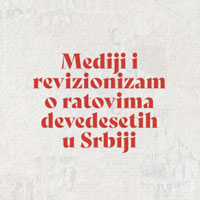
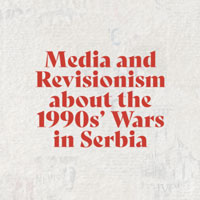 On Monday, 10 April 2023, at 6pm, in CROCODILE’s Centre (43 Karađorđeva St, Belgrade), Humanitarian Law Center is organising a discussion on the topic of Media and Revisionism about the 1990s Wars in Serbia.
On Monday, 10 April 2023, at 6pm, in CROCODILE’s Centre (43 Karađorđeva St, Belgrade), Humanitarian Law Center is organising a discussion on the topic of Media and Revisionism about the 1990s Wars in Serbia.